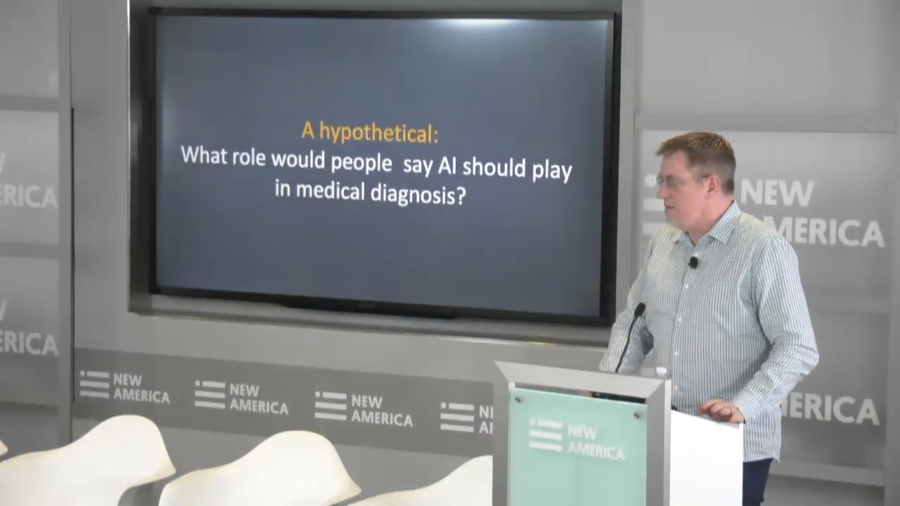In ten years of doing research and collaborations and being mentored, I’ve learned to see disabled people as doing the most creative work that is also the most urgent work of body meeting world. And I think it’s really critical to keep both of these things closely together.
New America (Page 1 of 5)
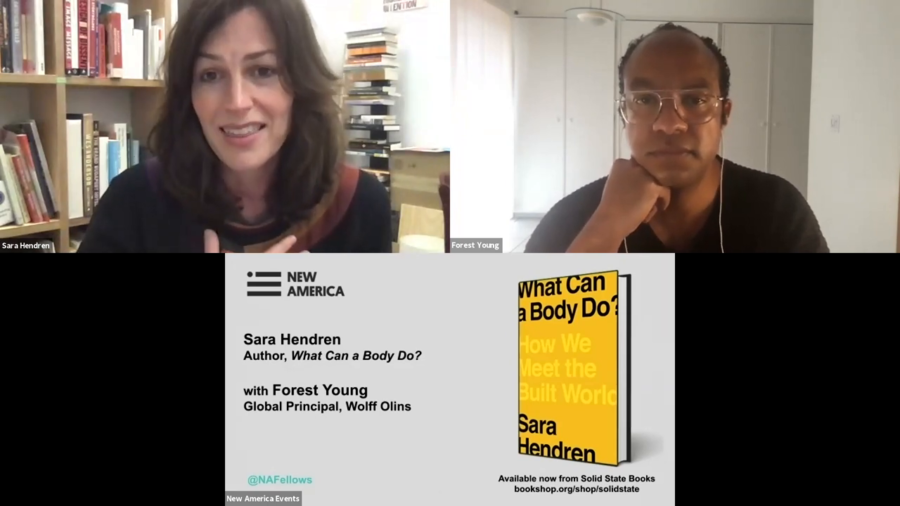
What Can a Body Do? How We Meet the Built World
presented by Foster Young, Sara Hendren
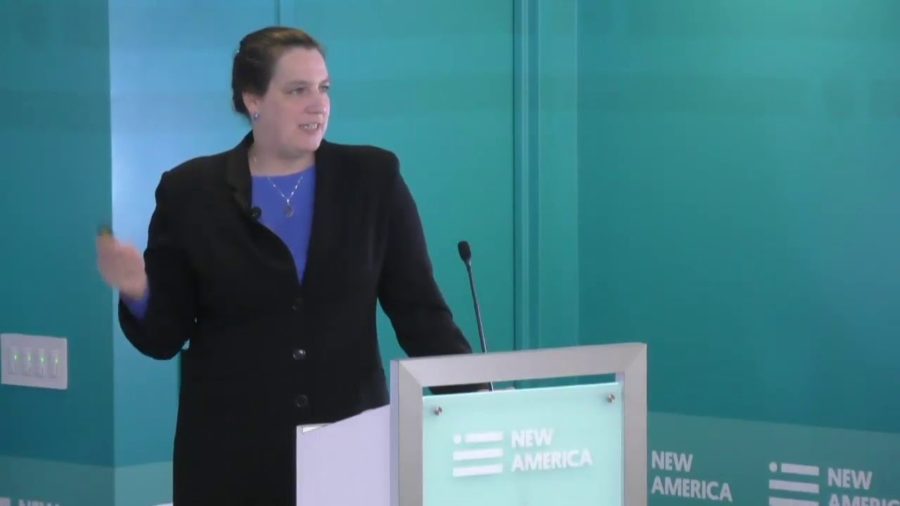
The Domains of Identity & Self-Sovereign Identity
presented by Kaliya Young
Self-sovereign identity is what sits in the middle enabling individuals to manage all these different relationships in a way that is significantly less complex than each of those institutions needing to have a business relationship with each other to see those credentials.
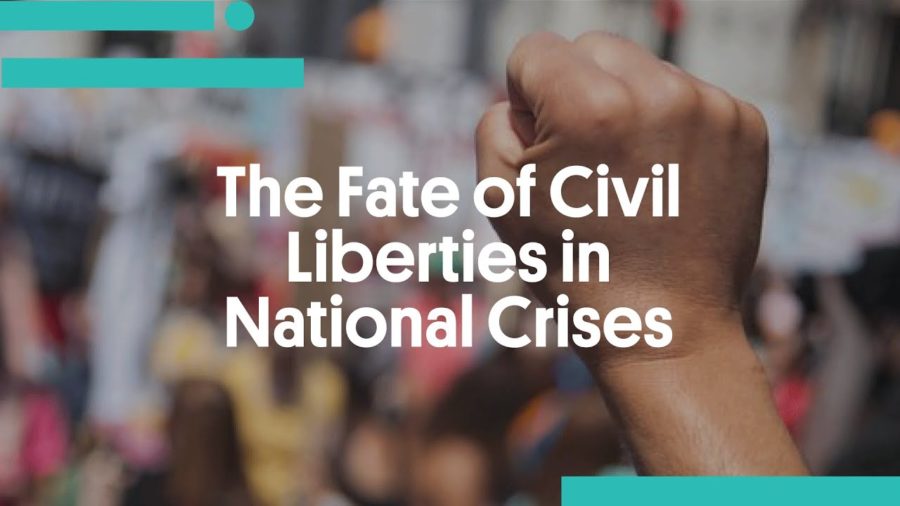
The Fate of Civil Liberties in National Crises
presented by Elie Mystal, Ian Millhiser, Jennifer Daskal, Mark Joseph Stern
The system I would want is I would want an assurance that if some extraordinary measure has to be put in place temporarily to deal with a temporary crisis, that the word “temporary” will in fact continue to apply. And I will add that this is a moment when I really wish we had a functioning Congress.
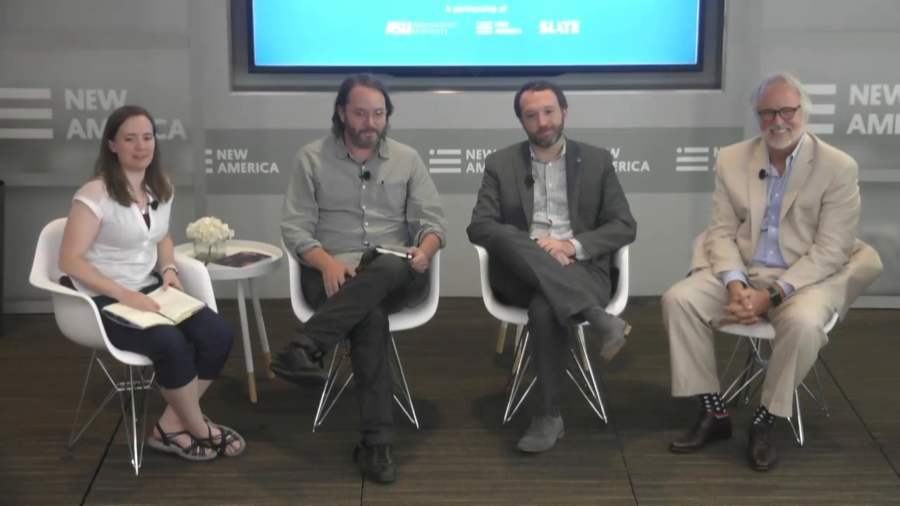
What Do Community and the Social Landscape Look Like in Space?
presented by Alex MacDonald, Craig Calhoun, Erika Nesvold, Fred Scharmen
Community is always part of a system that we sometimes can or cannot see or recognize. And in Gerard O’Neill’s proposals for these islands in space, those communities…were supposed to perform a very specific function in a larger system. They were supposed to be experiments.
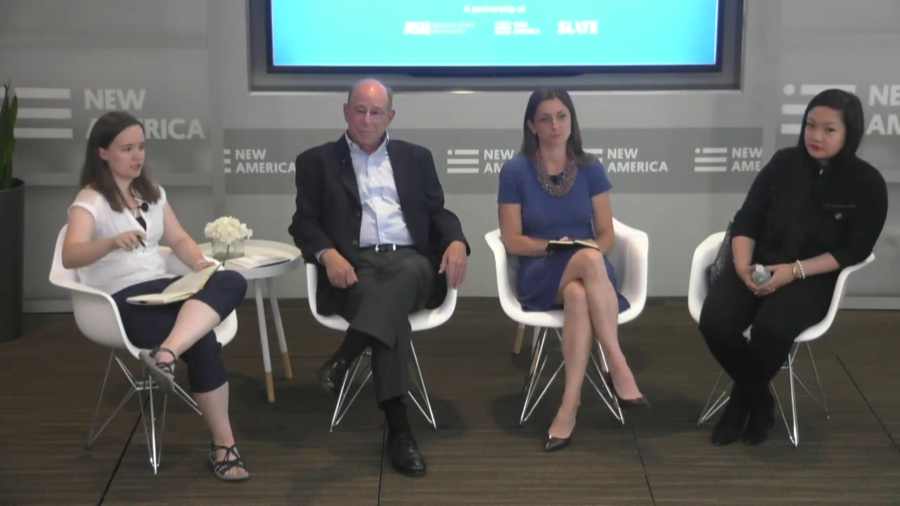
Law & Order, or Game of Thrones? The Legal Landscape of Space Exploration
presented by Amanda Nguyen, Erika Nesvold, Henry Hertzfeld, Yuliya Panfil
I personally am not worried about settlements. I think they’re so far in the future that we can’t predict what they’ll look like. We can’t even keep human beings, particularly a lot of human beings, alive in space or have real settlements, the way we envision a colony or a settlement. I don’t think the lack of sovereignty is going to hurt any of this.
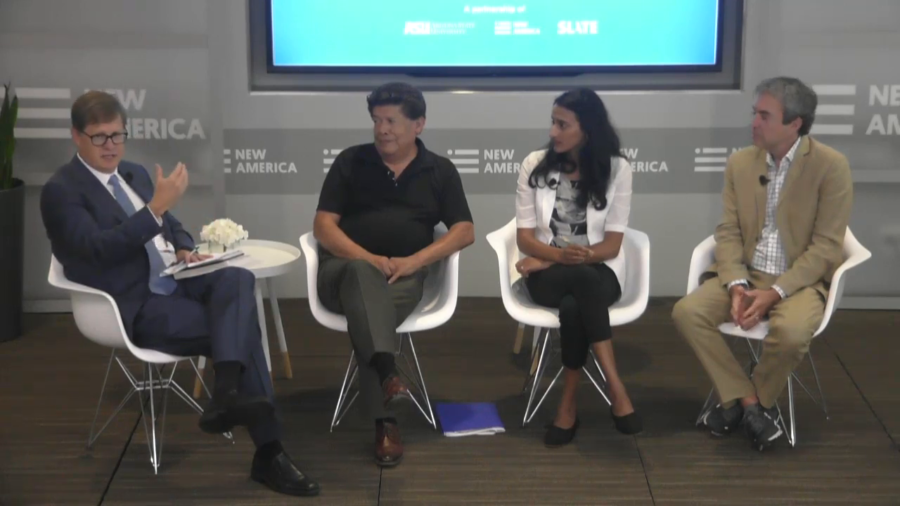
What Could be Unsettling about New Settlements?
presented by Andrés Martinez, Armstrong Wiggins, Bina Venkataraman, Russell Shorto
I think we’re already moving into a very—uncomfortably for most of us, into a place where nation-states, governments, are being forced to cede authority to corporations. And that is going to, I assume, happen faster and faster. And if you throw in space, if you throw in the limitlessness of space, then I mean…the sky’s the limit so to speak. I don’t know what the…where that takes us.
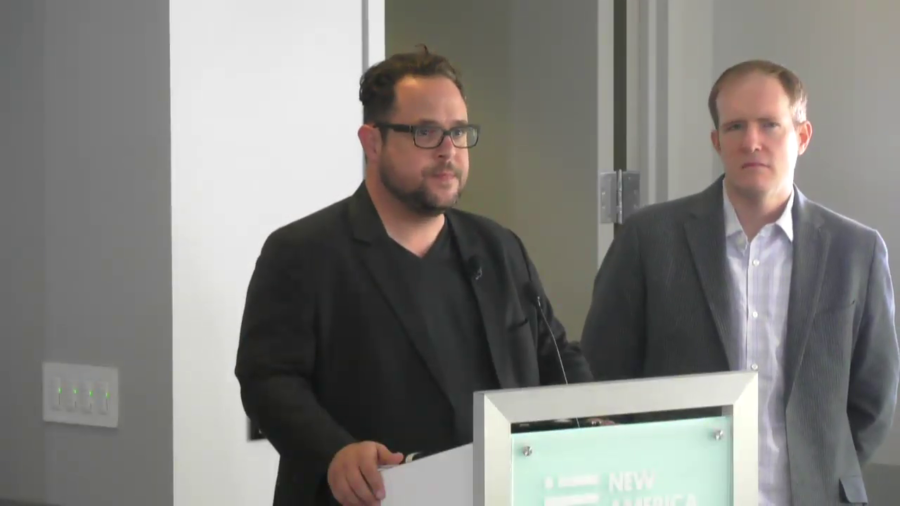
What Sci-Fi Futures Can (and Can’t) Teach Us About AI Policy, opening and closing comments
presented by Ed Finn, Kevin Bankston
AI Policy Futures is a research effort to explore the relationship between science fiction around AI and the social imaginaries of AI. What those social measures can teach us about real technology policy today. We seem to tell the same few stories about AI, and they’re not very helpful.
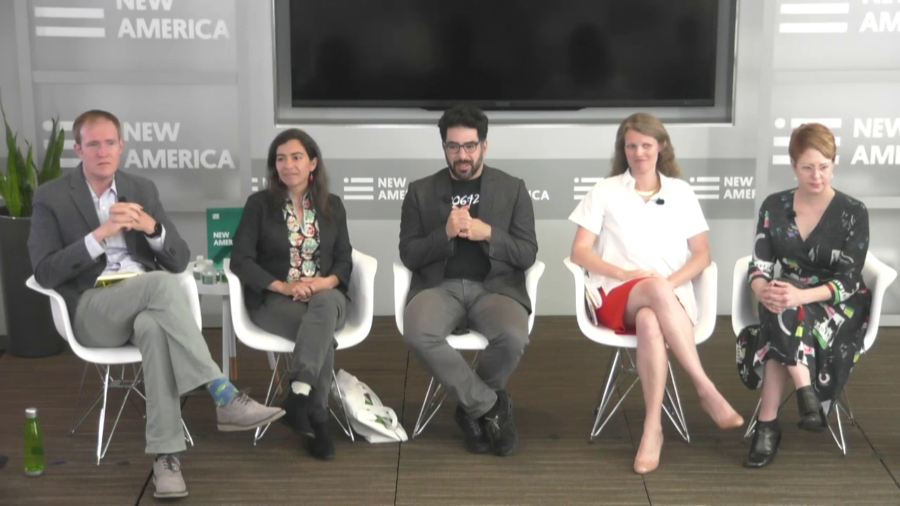
Bridging AI Fact and Fiction
presented by Ed Finn, Kristin Sharp, Malka Older, Molly Wright Steenson, Stephanie Dinkins
This is going to be a conversation about science fiction not just as a cultural phenomenon, or a body of work of different kinds, but also as a kind of method or a tool.
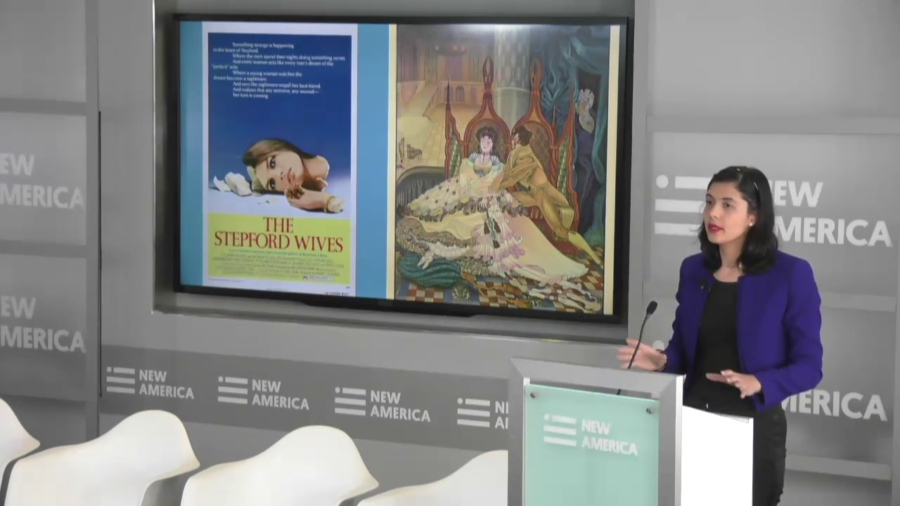
How Sci-Fi Reflects Our AI Hopes and Fears
presented by Kanta Dihal
We came up with the idea to write a short paper…trying to make some sense of those many narratives that we have around artificial intelligence and see if we could divide them up into different hopes and different fears.

